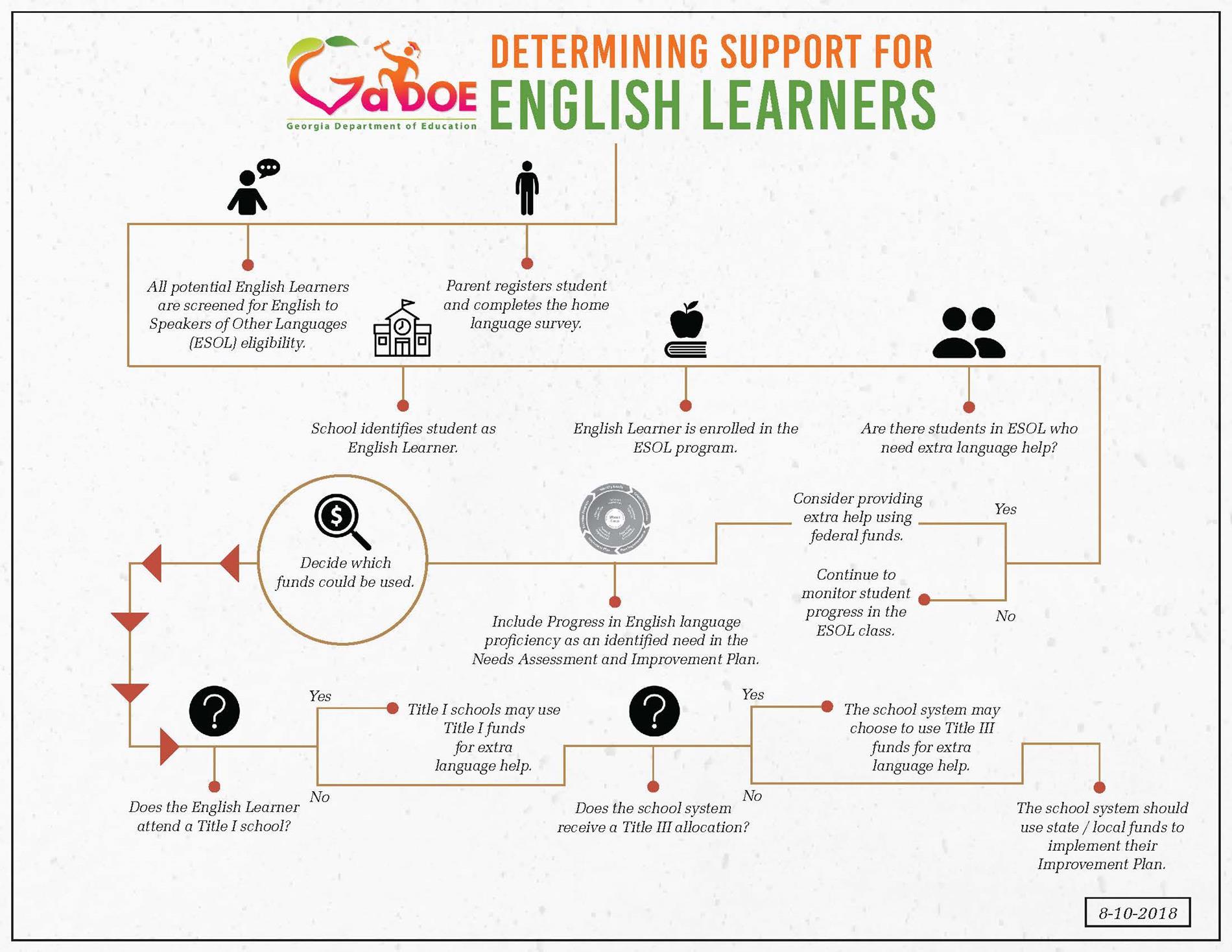Title III, Part A - Language Instruction for English Learners and Immigrant
Students
Language Instruction for English Learners and Immigrant Students of the Elementary and Secondary Education Act of 1965 as Amended under the Every Student Succeeds Act (ESSA) P.L. 115-141, enacted March 23, 2018, awards subgrants to eligible Local Education Agencies (LEA) “to help ensure that English learners (ELs), including immigrant children and youth, attain English proficiency and develop high levels of academic achievement in English.” [Sec. 3102 (1)] School districts with EL populations larger than the minimum threshold receive direct Title III, Part A allocations, while school districts with EL populations less than the minimum are eligible to form or join a Title III-A Regional LEA consortium in order to meet the minimum threshold collectively and thus receive an allocation. (See Consortia resources here.)
English to Speakers of Other Languages (ESOL) is a state-funded instructional program for eligible English Language Learners (ELLs) in grades K-12 (Georgia School Law Code 1981, § 20-2-156, enacted in 1985). The ESOL program is a standards-based curriculum emphasizing academic and social language development. ESOL coursework is based upon the WIDA Consortium English Language Development (ELD) standards.
Classroom teachers integrate these ELD standards with the Georgia Standards of Excellence to enable ELLs to communicate in English and demonstrate their academic, social, and cultural proficiency. Instructional approaches in ESOL and general education classes ensure that the needs of Georgia’s ELLs are accommodated. To the extent practicable, it is appropriate to use the ELL’s home language as a means of facilitating instruction and providing parents with school-related information.
Families are critical stakeholders within the ESOL program, and they have the right to know and understand how their child is progressing in his or her English language development. By providing families with information about key topics including what it means to be an ELL, the WIDA standards and assessments, and how to interpret student language proficiency scores, parents will be better equipped to engage in meaningful discussions with educators about students' language instruction and progress.
While parents are the primary audience for the webinars, educators can also benefit, as this resource raises awareness about the types of questions parents of ELLs may have and offers opportunities to examine local practices in order to enhance communication with families of ELLs.
Click here to view the webinars and learn more: https://www.wida.us/standards/eld.aspx#webinar
Part I: My child is a English language learner. What does that mean?
Part II: How is my child's language development supported at school?
Part III: How do I know if my child is making progress?
Source: Georgia Department of Education




